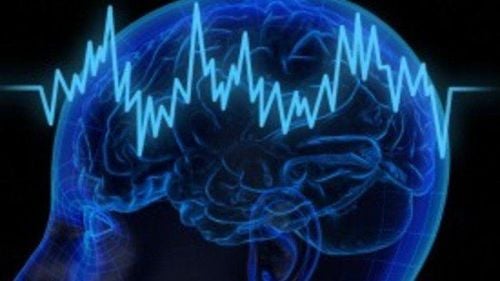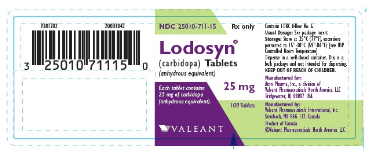This is an automatically translated article.
A good and deep sleep not only helps you feel more awake and alert the next day, but it also offers certain health benefits, including improved brain function, heart disease prevention, diabetes and Alzheimer's.
1. Stages of Sleep
Normally, sleep will have 2 main types, including REM (rapid eye movement) sleep and NREM (non rapid eye movement) sleep. Your sleep cycle will begin with NREM sleep, and end with REM sleep. This cycle happens about every 90 minutes and continues throughout the night.
*Stage 1: is the first stage of NREM sleep when the whole body and brain begin to gradually transition from being awake to resting (sleeping). This stage only lasts for a short time, about a few minutes until the body enters sleep gently. However, this is also the stage when you are most likely to wake up compared to other stages of the sleep cycle.
In addition, in the early stages, some important functions of the body, such as breathing, heart rate and eye movements show signs of slowing down. Besides, the muscles also go into a relaxed and relaxed state, sometimes twitching slightly. At this time, the brain activity along with the stimulation of the body's senses is reduced, making the brain waves also slower than before.

Giai đoạn đầu tiên khiến sóng não và hoạt động của não bộ bị giảm xuống
*Stage 2: is the next stage of NREM sleep. During this stage, you will sleep deeper and more often. The muscles continue to relax, brain waves slow down, body temperature drops, and eye movements stop.
*Stage 3: is a stage of deep sleep, also known as slow wave sleep (SWS), or delta sleep, usually lasting about 45-90 minutes. At that time, breathing and heart rate are at the lowest level of the sleep cycle.
Besides, the eyes and muscles relax, even the brain waves are slower than in the previous stages. When you are in deep sleep, it will be difficult to wake up even with loud noises.
*Stage 4: this is a very deep sleep, only about 20% of the total sleep time. At this time, the body will be in a state of complete rest, almost all brain waves are delta slow waves.
Moreover, heart rate, respiration, blood pressure and body temperature are also reduced to the lowest possible level. The muscles of the eyes, legs, and arms no longer move. When you wake up during this stage, you will feel light-headed, lethargic, and it takes a few minutes for your body to return to normal.
*Stage 5: As the final stage of the sleep cycle, you will move into REM sleep. During this time, the body is more likely to be in a more awake state than in other periods. Even though the eyelids are closed, the eyes still move back and forth. The brain waves also begin to function again, akin to waking brain waves. In addition, respiration and heart rate also increase. You will have dreams during the REM phase.
2. What are the benefits of deep sleep?
Deep sleep occupies a very special place in the overall health of people. This is also why it is considered the most important stage in the sleep cycle.

Một giấc ngủ sâu có vai trò rất đặc biệt đối với sức khỏe tổng thể của con người
A deep sleep will significantly improve brain functions, including the ability to collect and remember information, or retain good memories. Besides, this stage also helps the brain to rest and relax after a long tiring day, and at the same time, replenishes energy in the form of glucose for a new day to start.
In addition, the deep sleep stage has the ability to balance the body's hormones, especially the growth hormone produced by the pituitary gland, which has a beneficial effect on tissue growth and cell regeneration. Therefore, getting enough sleep is essential to keep these functions running smoothly and efficiently.
Every day you should sleep enough from 7-9 hours so that the body has more time for the deeper sleep stage. When the body does not get enough sleep, the cycles will happen more quickly so that fast sleep reaches the deepest level and stays at that stage longer.
Regular lack of sleep will negatively affect brain functions, especially memory problems. Information is then received more slowly, making it difficult to create new memories. Over time, this condition can lead to some serious health problems, such as Alzheimer's disease or heart disease.
3. How does poor sleep affect health?
Normally, NREM sleep will account for about 75%, and the rest is for REM sleep. Of the total sleep time, about 13-23% is deep sleep. This is a necessary period for young people because they need more deep sleep for full physical growth and development.

Những giấc ngủ sâu giúp trẻ em tăng trưởng và phát triển toàn diện
When you are sleep deprived or not sleeping well, you may experience the following problems:
Heart disease Stroke Diabetes Alzheimer's Disease Some disorders such as sleepwalking , night nightmares , or bedwetting
4. Measures to help you sleep better
If you often wake up in the middle of the night and can't get back to sleep, here are some ways to help you improve:
*Don't stare at the clock: check the time as soon as possible. much will only add to the stress when you are trying to sleep with your eyes closed. Ideally, you should turn the watch out of your sight.
*Turn off devices with light: the light from electronic devices can affect the quality of sleep and wake you up. If you're getting up to go to the bathroom, get a drink, or have a snack, it's best to leave the light on at a low intensity. In particular, the blue light from the phone or computer screen also needs to be turned off before going to bed.
*Change your diet: you should increase foods containing healthy fats and limit the consumption of many carbohydrates.

Thay đổi chế độ ăn uống và sinh hoạt sẽ giúp bạn ngủ ngon hơn
*Relax: several ways to help you relax your body before going to bed, including:
Deep breathing Meditation Meditation Visualizing the sounds, sights, and scents of a peaceful place Muscle relaxation exercises Reading Listen to music Take a hot bath *Some other measures include:
Avoid alcohol and caffeine at the end of the day Reduce pressure and stress Take medication prescribed by your doctor, such as antidepressants Guests Customers can directly go to Vinmec Health system nationwide to visit or contact the hotline here for support.
Reference article source: webmd.com













